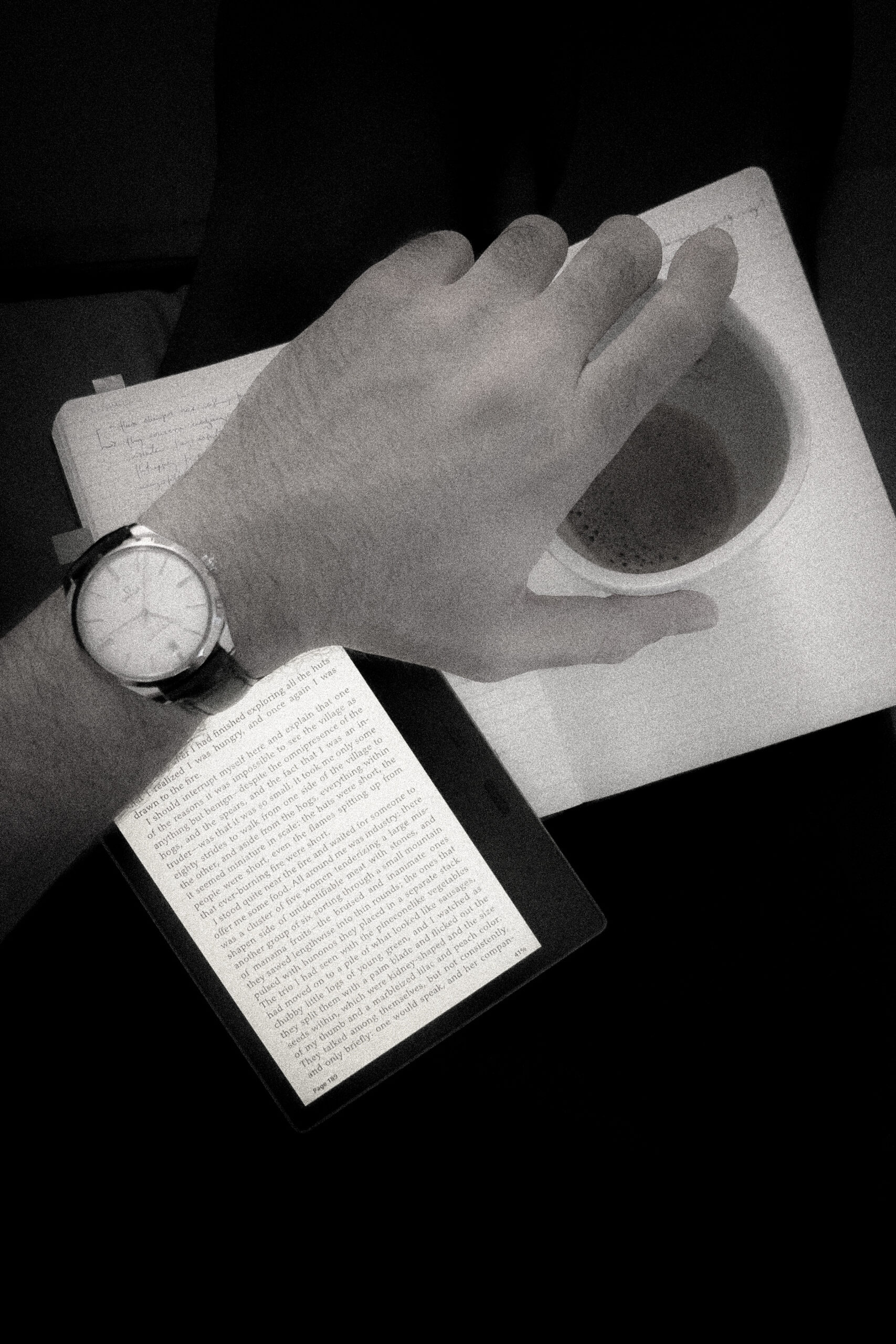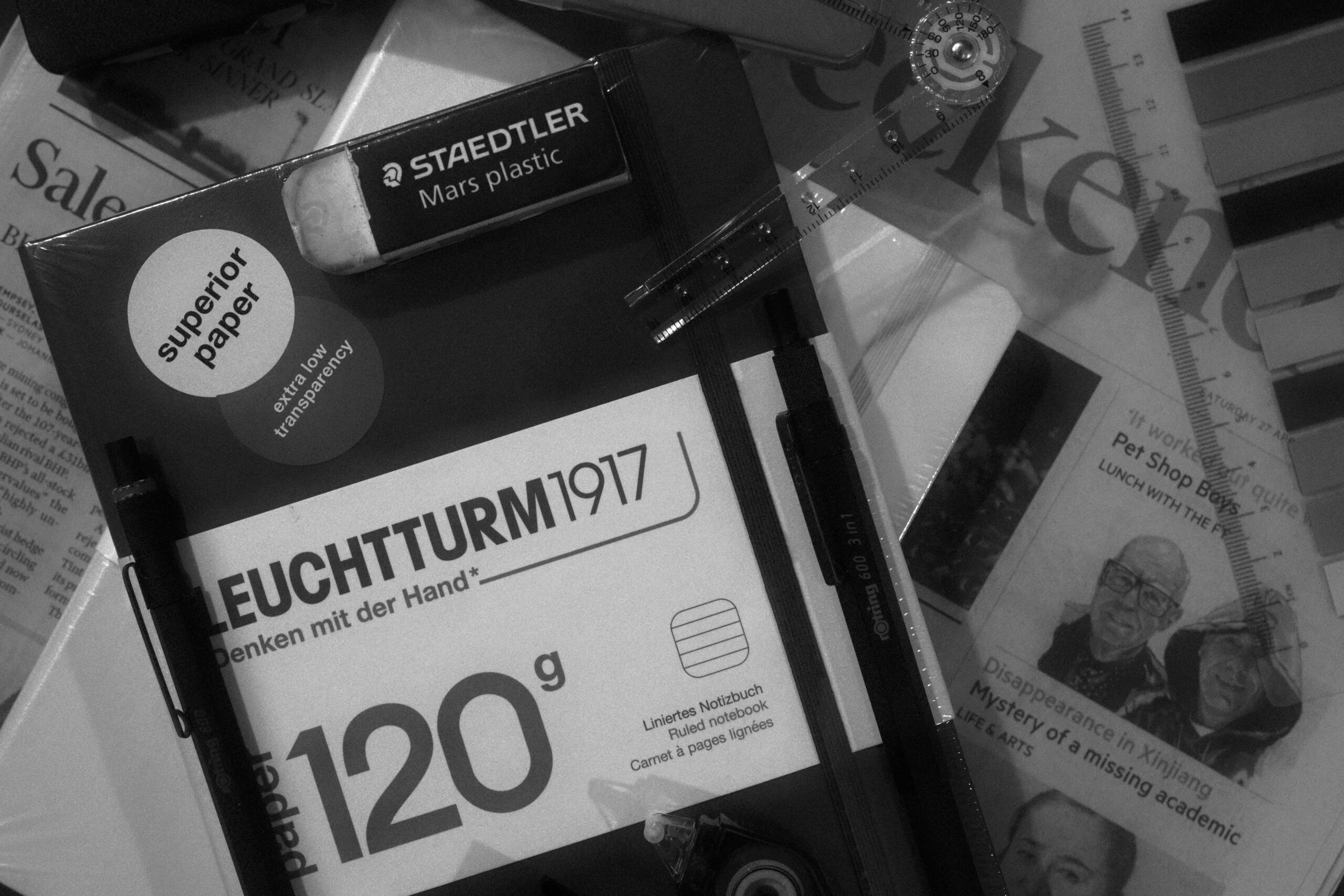896 words
“To lose the journal was to lose continuity from one day to the next” – Yiyun Li
Without thinking, I handed my journal and pen to a crowd of about forty people. It was the day after one of the best weddings I had ever attended, and I intended to collect everyone’s email addresses in order to share the hundreds of photographs that I made over the course of the weekend.
“Well, crap,” I thought internally. “I hope no one actually bothers to flip through that book.” Thankfully, my 3mm tall cursive lettering, though neat, was too difficult to decipher at a glance. Much like Samuel Pepys’ cryptic shorthand in his initial journals, my writing proved too difficult to make sense of without a high degree of focus. I was relieved that everyone praised my neat handwriting instead of the devastating words a couple of pages prior.
My apprehension was focused on a couple of entries that were quite personal. The journal that was handed out is what is called a “commonplace book.” These journals are not traditional journals where one writes down their deepest thoughts when the day is done. A commonplace book is used to record anything of interest. Quotes, statistics, observations, sketches, and yes, even the occasional journaling.

I started my first commonplace book after suffering from the symptoms of Long Covid long before we knew that brain fog, trouble with information retention and memory were a consequence of the infection. Since 2007, I start my day with a newspaper. At times the number of newspapers ballooned to three. I took brief took notes on anything that may have become relevant throughout the day, for I had no trouble recalling any detailed information even a couple of months later. With age, and repeated infections of every variation of Covid, the commonplace book became a necessity.
Throughout the following couple of years, the information within the journal came to be of great use professionally, personally, and for my creative endeavours – such as what you are reading here. Though notes were taken on every subject imaginable, I started to include personal journal entries after the first two-hundred-page journal was completed.
It was not until the first of this month that I bothered to go back and do a review of the month that just passed. It was on that morning that these journals became even more valuable than I could have ever imagined.
I like most humans, tend to focus on the negative. We only remember the bad times and how we struggled through a particular period. We rarely step back and take into account the many accomplishments, milestones, and strides that we have made along the way. This is especially true if these strides or improvements were made incrementally, at a slow pace, and the result of hard gruelling work.
When I did my first “month in review” I then remembered how far I had come from severe health setbacks. That and particularly how much work I had put and continued to put into myself and work. Going back further than a couple of months, I, in amazement, read about passing out from exhaustion in an art gallery on a chair. I read about my back giving out resulting in having to find the nearest bench and to reschedule the meeting I was walking to. Going back a year, I read about losing all strength and feeling in my right leg and starting the incredibly long process of rehab to build back the leg only to suffer a decompression injury while diving as my rehab program was coming to an end.
I sat back. I took a breath. And these words came out of mouth uncontrollably.
“What in the actual fuck.”
Every morning started with a quick trip to the yoga mat where every injury and ache was tended to before opening my mind to the world’s concerns with the newspapers. Every single day until then, I merely focused on what was wrong and what I needed to be done to address it. I never bothered to look at how I had improved and to take stock in my efforts to that point.
Instead of patting myself in the back, I repeated those words I had just uttered and wondered what was wrong with me and, once again, what I could do to fix it.
The answer was to pat myself in the back and to take a longer-term view not only when concerning the future, but also with the past. This can especially be hard if sleep deprived and when contending with Long Covid as the act of recalling itself is severely disabled.
Naturally, later in that day I ventured forth into the wasteland that is the internet on journalling and commonplace books only to be greeted with attempts to sell me products and not given any actual tips to better my journaling. If you are looking to start a journal, whether that be a commonplace book or any other kind of journal, I recommend that you start with what is most important for you instead of sticking to a template. These templates usually are either selling you a type of journal or any number of stationary items.

More importantly, do not feel like you have to make it pretty, to fill every page, or to write in it every day. Use it as a tool to focus on yourself, for that is all that matters in this deeply personal space.
Time of writing: June 6th, 2024
List of gear and items for my journaling:
- Leuchtturm 1917 80G or 120G A5 Ruled Journals
The 120G notebook has a heavier stock of paper, 120G versus 80G, and though it is noticeably thicker while containing fewer pages, there is less ghosting on the other side.
I find this to be distracting and to impact legibility.
Leuchttrum journals also have a table of contents and page numbers which are very useful.
When compared to the popular brand Moleskine, the cover and paper quality are decidedly nicer. The binding is also in another league in terms of durability. - rOtring 600 3-in-1
This writing instrument contains two refillable ink slots using Parker Jotter refills, and a 0.5mm mechanical pencil. This allows for quicker writing and colour coding. - rOtring 800 pen
This additional pen is used for an additional colour primarily for personal observations and conclusions alongside notes. - Staedtler eraser
- Midori multi-ruler
- Adhesive tabs for quick indexing

